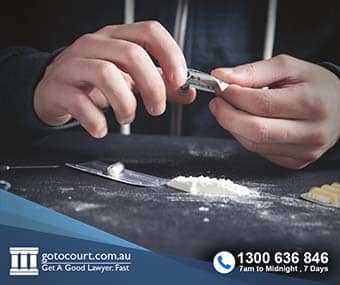One Punch Assaults Causing Death (NSW)
One punch assaults, also known as ‘king hits’ or ‘coward punches’, have dominated the media in recent years. These terms refer to assaults where a person strikes another in the head and knocks them unconscious, leaving the victim at risk of further head trauma when impacting with the ground. A worrying trend has developed in recent years of young men committing such assaults in public areas whilst under the influence of alcohol and causing death to the victim.
In most cases one punch assaults are not premeditated and the death of the victim is usually a consequence of the offender’s impulsive actions. The offender is generally heavily intoxicated. Courts have therefore faced the predicament of sentencing an offender for a fatal assault in circumstances where all the evidence suggests that he did not have the intent to kill.
The offence of murder requires the offender to have intentionally killed the victim, while manslaughter requires the victim’s death to have been foreseeable. In one punch assaults however, it could be sometimes be successfully argued that the victim’s death was neither intended nor foreseeable. A conviction for manslaughter was therefore not always possible or appropriate, while a mere aggravated assault struck many people as inadequate when someone had died.
In 2014, after several highly-publicised one punch assaults in New South Wales, the state government introduced new legislation to govern offences of this nature and impose tough penalties for offenders who are convicted of one punch assaults causing death. It also amended the criminal law so that intoxication can no longer be relied on as a mitigating factor, where it is voluntary.
Offences for one punch assaults
The Crimes and Other Legislation Amendment (Assault and Intoxication) Act 2014 (‘The Act’) amended the Crimes Act 1900 to include a new offence, Assault Causing Death.
The new provision states:
- A personis guilty of an offence under this subsection if:
A person who is convicted of this offence is subject to a maximum term of imprisonment for 20 years.
The Act also introduced an aggravated form of the offence in circumstances where the offender is intoxicated at the time the offence is committed. A person found guilty of the offence of Assault Causing Death When Intoxicated is liable to a maximum sentence of 25 years imprisonment.
Section 25B introduced a mandatory minimum sentence of 8 years for this offence. Any non-parole period is required to be set after the offender has served not less than 8 years.
Testing for intoxication
The Act made several other important amendments to the previous laws. Firstly the Law Enforcement (Powers and Responsibilities) Act 2002 was amended to allow for the testing of certain offenders for intoxication.
Section 138D states:
- This Division applies to a person who has been arrested by a police officer:
- for an alleged offence under section 25A (2) of the Crimes Act 1900, or
- for any other offence that involves the assault of another person if the police officer believes that the person would be liable to be charged with an offence under section 25A (2) of the Crimes Act 1900 if the other person dies.
- A police officer may exercise the powers conferred by this Division for the purpose of confirming whether the person had consumed or taken alcohol, a drug or other intoxicating substance before the alleged offence and the likely amount consumed or taken.
Section 138F allows police officers to conduct breath tests of offenders charged with a relevant offence and Section 138G allows for blood and urine testing if the offender refuses a breath test or a police officer believes they are under the influence of a substance other than alcohol.
An offender who refuses to provide a blood or urine sample as required under Section 138G, unless on proven medical grounds, is guilty of an offence and may be fined up to $5,500 and/or sentenced to a term of imprisonment of up to 2 years.
Intoxication not to be taken as mitigating factor
The Act also amended the Crimes (Sentencing Procedure) Act 1999 to deal with the issue of self-induced intoxication.
The Act inserted a new provision that states:
Special rule for self-induced intoxication
In determining the appropriate sentence for an offence, the self-induced intoxication of the offender at the time the offence was committed is not to be taken into account as a mitigating factor (Section 21A (5A) (5AA)).
This means that where the offender has freely chosen to ingest alcohol or another drug, their intoxication does not reduce the seriousness of their offending or the level of punishment they receive.
Conclusion
The new legislation around one punch assaults provides a multi-faceted approach for the courts and police to effectively deal with such attacks. In addition to providing a clearly defined new offence, newly introduced police powers and tough mandatory minimum sentences provide significant deterrents to other would-be offenders.
If you have been charged with a criminal offence, please contact Go To Court Lawyers.








